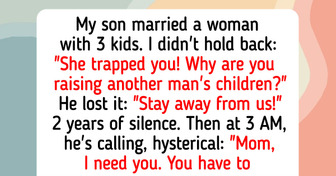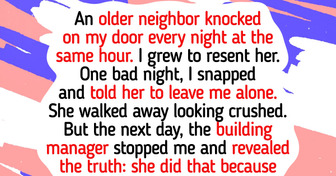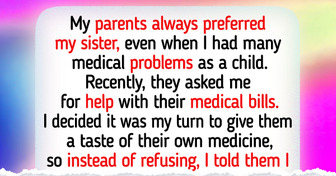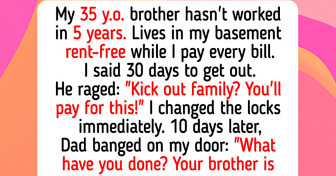15 Success Moments From Strangers That Deserve All the Golden Buzzers in the World
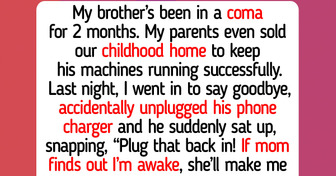
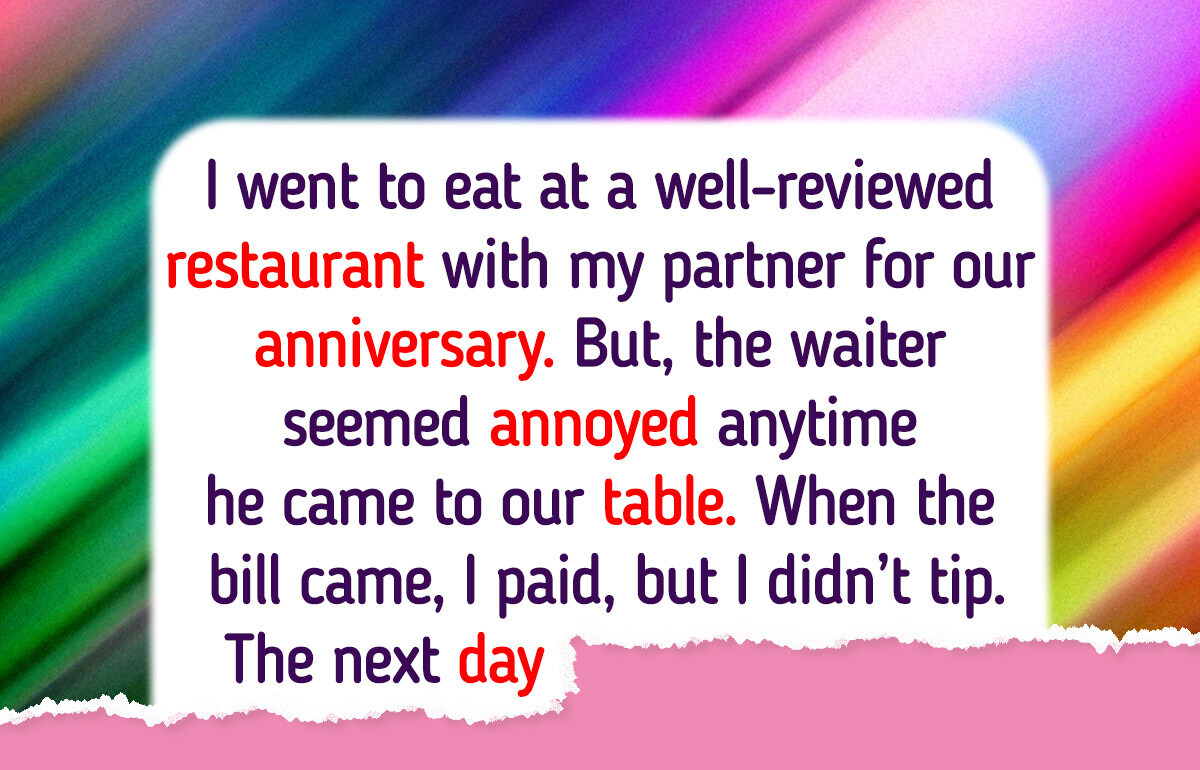
Tipping often stirs strong opinions, especially when the service leaves much to be desired. That’s exactly what happened to David, who found himself in the middle of a fiery tipping dilemma after a disappointing evening at a fancy restaurant. Dismayed by the waiter’s lackluster attitude and inattentiveness, he made the bold choice to leave without tipping.
But what unfolded next was anything but typical. The situation quickly spiraled, taking a surprisingly intense turn. Overwhelmed and incensed, David turned to us for guidance, and his story might just change how you think about tipping altogether.
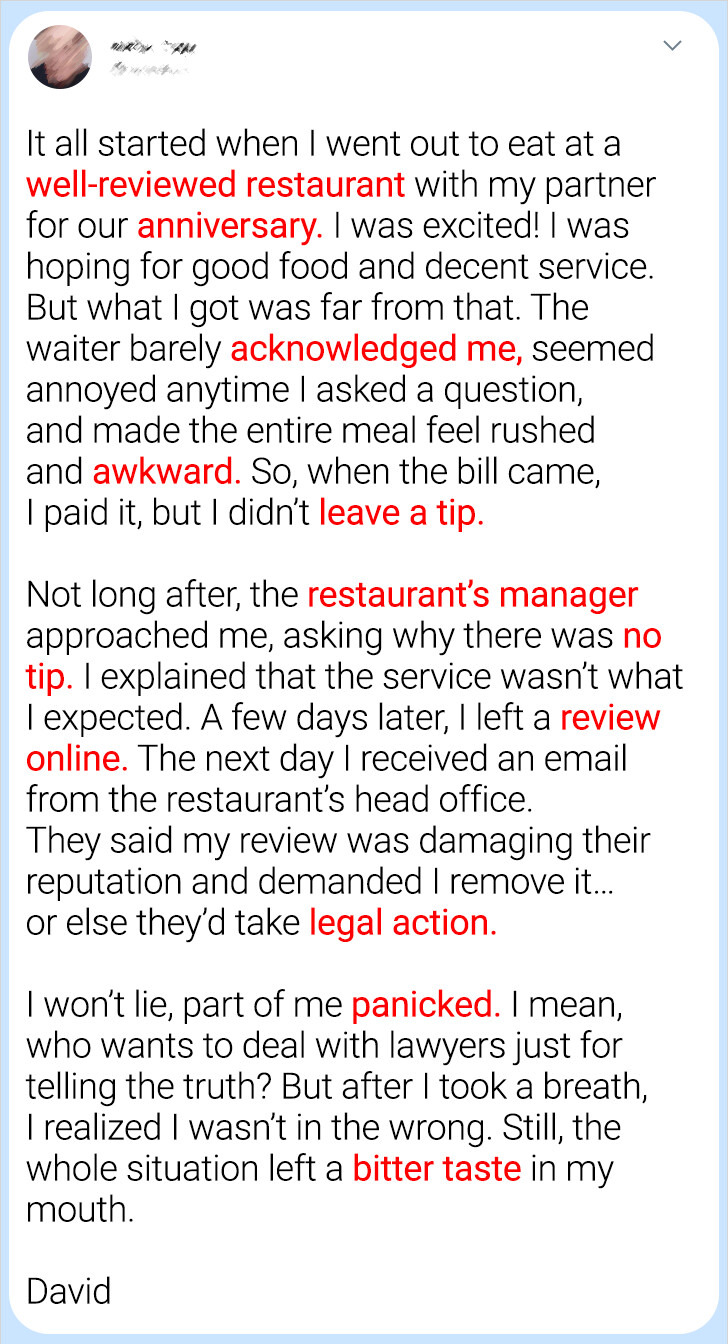
Hello David! Thanks for reaching out and telling us your story. We’ve put together a few tips to help you handle this kind of situation.
If you haven’t done so yet, write down everything that took place during your dinner and the follow-up call. Be sure to note the waiter’s behavior, how the manager approached you, and the exact language used by HQ when issuing the threat. Look over your receipt for any mention of a service charge and keep a copy of your review as supporting evidence.
Having thorough documentation will strengthen your position if the restaurant takes legal steps and show that your review reflects your honest experience.
Compose a clear and courteous email outlining the entire situation, emphasizing that your review was an honest account of your experience. Kindly express that their legal threat feels unwarranted and request a formal apology for the way you were treated.
Taking this route may help defuse tensions and encourage them to reflect on their staff’s conduct rather than attempting to suppress valid customer feedback.
Given the legal threat, it’s important to speak with an attorney who understands defamation laws in your jurisdiction. Share the full context, including the company’s response, and confirm whether your review is protected under free speech. Often, as long as your statements are truthful and not misleading, you have legal protection. This step will help you move forward with greater clarity and assurance.
if the restaurant continues to issue threats, consider bringing your experience to light on social media or consumer advocacy platforms. This can highlight their attempt to intimidate rather than resolve the issue. Make sure your post is factual and backed by evidence to avoid inflaming the situation further. Public attention often encourages businesses to reconsider their approach and handle feedback more responsibly.
Mark was recently caught in an awkward tipping situation. During a family dinner at an upscale restaurant, his father-in-law suddenly asked him to handle the $300 tip. Taken by surprise, Mark declined, which instantly sparked tension and soured the mood for everyone. What followed has left the entire family in shock. Read the full story here.





